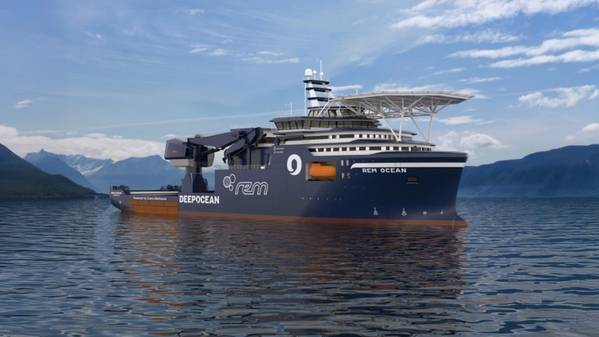
Ocean services provider DeepOcean has secured a long-term subsea inspection, maintenance and repair (IMR) contract from Equinor, its largest contract on record.
The eight-year contract will set a new benchmark for digitalized and environmentally friendly IMR operations.
Equinor and DeepOcean have signed a contract for IMR services covering the period 2027-2035 for Equinor-operated assets on the Norwegian continental shelf and in Europe.
The contract will be served by an extensive team of specialist subsea engineers, a large subsea tool pool, remote operations technology, and a newbuild vessel chartered to DeepOcean.
As part of the contract, DeepOcean will charter a vessel from Rem Offshore for the duration of the contract period.
The newbuild vessel, Rem Ocean, will have dual-fuel engines capable of running on bio-methanol and biodiesel, along with a battery energy storage system and regenerative energy systems.
Rem Ocean will be equipped with an Autonomous Inspection Drone (AID), accelerating the digitalisation of subsea asset inspection.
Its design has been developed as a collaboration between DeepOcean, Rem Offshore, Skipsteknisk and other key suppliers.
The vessel will also feature a 250 tonnes electrical crane, two electric WROVs in hangars, 1,000 square metres outside deck area, and an inside hangar area of 350 square meters, in addition to accommodation for 120 people.
“This is a major milestone in DeepOcean’s history. We are extremely proud to be awarded this unique long-term commitment. The contract enables us to invest time and resources into our next generation subsea services offering to Equinor. This is a testament to decades of hard work laid down by our on- and offshore employees to perform high quality IMR services,” said Øyvind Mikaelsen, CEO of DeepOcean.
“The vessel, which will serve as a platform for the contract, is projected to achieve a 90% reduction in emissions when operating on bio-methanol and a 30% reduction when using conventional fuels compared to existing IMR vessels. Additionally, it will be optimized for remote operations, facilitating for reduced need for marine and project crews offshore,” added Olaf A. Hansen, Managing Director, DeepOcean Europe.